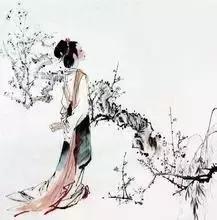








韩国称春节为“旧正”,与称新年为“新正”相对应,就是旧历年的意思。国家规定春节放假三天,是一年中假期最长的。
外文名
South Korea during the Spring Festival
简介
韩国春节(:설날)又称旧正(朝鲜语:구정),是韩国的传统佳节。传统上又称“元旦”(朝鲜语:원단)、“元日”(朝鲜语:원일)、“岁首”(朝鲜语:세수)。由于韩国是汉字文化圈国家,过春节习俗与中国有很多相似之处。不少韩国人特别是年长者都知道自己的属相,天干地支在韩国也很流行,比如2005年“鸡”年,韩国人称之为“乙酉年”,2006年“狗”年,韩国人称之为“丙戌年”,2013年称农历癸巳年。
韩国人过春节比较安静,商店也都纷纷关门休业,街上十分冷清。中国人很喜欢热闹,春节期间街上到处是人,十分热闹。两国人过春节的时候都会给晚辈压岁钱,所不同的是,中国人用红色的信封包成“红包”,而韩国人则习惯用白色的信封装压岁钱。
韩国人讲究回家过年,与中国有共同之处。韩国人不管在哪里工作,也不管离老家有多远,一到春节,都要赶回家乡去团聚。父母在的,回到父母身边;父母不在的,长兄为父,到大哥家与兄弟姐妹团聚。
韩国据说从新罗时代韩国就开始过春节了,然而在日本对朝鲜半岛实行殖民统治时期,过春节被严格禁止。当时如果某个孩子的饭盒里被发现祭祀用食品,这个孩子就会受到处罚。春节作为一个传统的节日,在韩国经历了一段“等待”的历程,直到1985年它才以“民俗日”的名称再次出现。
We walked into the Korean Spring Festival South Korea calls the Spring Festival "old and old", and the New Year is called "new", which means the old year. The state stipulates that the Spring Festival holiday is three days, which is the longest in the year. Foreign name South Korea during the Spring Festival introduction The Korean Spring Festival is also known as the old Korean festival, which is a traditional festival in South Korea. It is traditionally called "New Year's day" (Korean: "ji"), "yuan day" (Korean: "ji"), "year's" (Korean: < / p > < p > ". Since South Korea is a country in the Chinese character culture circle, there are many similarities between Spring Festival customs and China. Many south koreans, especially older people, know their own signs, and they are also popular in South Korea. For example, the year of the rooster in 2005, the year of the rooster, the year of the dog in 2006, the year of the dog in 2006, the year of the ninth year in 2013, the year of the Chinese lunar calendar. South koreans are quiet at the Spring Festival, shops are closed and the streets are very cold. Chinese people like to be busy. During the Spring Festival, the streets are full of people and very lively. When the two countries celebrate the Spring Festival, they will give the younger generation lucky money. The difference is that Chinese people use red envelopes as "red envelopes", while koreans are used to using white envelopes to put lucky money. South koreans pay attention to going home for the New Year, and they have something in common with China. No matter where they work, no matter how far away they are from their hometown, they have to go back to their hometown for reunion when the Spring Festival comes. Parents are there, back to their parents; If parents are not, the eldest brother is a father, to the eldest brother's house and brothers and sisters together. South Korea is said to have celebrated the Spring Festival in South Korea during the New Jersey era, but it was strictly banned during the colonial rule of Japan over the Korean peninsula. If a child was found in his lunch box, the child would be punished. As a traditional festival, the Spring Festival has experienced a "wait" process in South Korea, and it did not appear again in the name "folk day" until 1985.
,




